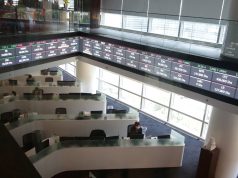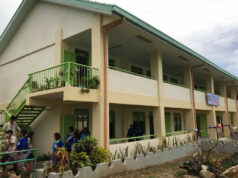Reforms’ fate at stake in today’s polls
By Charmaine A. Tadalan
Reporter
RESULTS of today’s midterm elections will give a clearer picture of how secure remaining economic and other structural reforms, as well as business-friendly local initiatives, will be in the last three years of President Rodrigo R. Duterte’s term, analysts and business leaders said in separate interviews late last week.
The Federation of Filipino Chinese Chambers of Commerce & Industry, Inc. (FFCCCII), for one, said the next Congress, which opens its first of three regular sessions on July 22, should continue economic reforms and policies of the present administration, with an even stronger focus on job generation. “For businesses people and investors, continuity, stability and security are important. Our economy is improving. The key now is job creation, which means we need to speed up skills and technologies. FFCCCII is united in the government’s efforts to spur job creation and generate economic output that extend to all regions of the country,” FFCCCII President Henry Lim Bon Liong said in a mobile phone message on Friday.
The British Chamber of Commerce Philippines (BCCP) cited the need to speed up development of infrastructure projects and moves to further open up the economy to more foreign investments “Obviously, what we’d like to see is a continuation of the ‘Build, Build, Build’ program after the election, or the acceleration thereof, and of course with a change of perspective, we’re hoping to see an acceleration or continuing expansion, liberalization of the economy in order to increase foreign direct investments,” BCCP Chairman Chris Nelson said by phone on Saturday.
The Philippine Chamber of Commerce and Industry (PCCI) shared this view, citing the need for more amendments to the Republic Act No. 7042, or the Foreign Investments Act of 1991, and RA 8762, or the Retail Trade Liberalization Act of 2000.
Leaders of the chambers also said lawmakers in the next Congress should sustain efforts to further ease restrictions on doing business.
“One area that I would like the new Congress to really look at is to make our country more competitive so that there will be more foreign direct investments, and also the fact that we would really need to implement this bill that has been passed, the ease of doing business law, which is anti-red tape, because it affects a lot of MSME (micro, small, medium enterprises),” PCCI Chairman George T. Barcelon said in a phone interview on Friday.
Mr. Duterte on May 28 signed RA 11032,or the Ease of Doing Business and Efficient Government Service Delivery Act of 2018, which amends RA 9485 or the Anti-Red Tape Act of 2007.
Mr. Barcelon said the administration will likely have “a bigger number” of supporters in the Senate this time, based on the list of favorites in recent surveys.
“I would like to think this would be a positive sign, if the proper bills that will be passed in Congress will help the business sector. When I say business sector, I’m talking about the country itself, whether there will be more economic activity,” he said.
For Employers Confederation of the Philippines President Sergio R. Ortiz-Luis, Jr., “I guess majority of us feel it is better for the administration to have a control on the Congress, so that they can move in unison.”
Economists cited Congress’ crucial role in Mr. Duterte’s reform agenda, with some noting how lawmakers revised and at times watered down some tax bills, reducing revenues they had been designed to bring in.
Union Bank of the Philippines, Inc. Chief Economist Ruben Carlo O. Asuncion said in an e-mail on Saturday that “both the House and the Senate need people who will work relentlessly for appropriate fiscal and other economic reforms.”
“Crucial reforms are the rationalization of incentives and reduction of corporate income taxes. These ones will help drive foreign direct investments higher. The current environment has left the country behind our Asian neighbors.”
Michael L. Ricafort, economist at Rizal Commercial Banking Corp., said in a separate e-mail that “the outcome of mid-term elections on May 13, 2019 will be significant as this provides a strong signal on the level of support/mandate to be given by elected lawmakers from both the Senate and House of Representatives to the administration for the next/remaining three years in terms of the passage of key economic and fiscal reform measures, as well as other priority legislative measures.”
Ateneo Policy Center senior research fellow Michael Henry Ll. Yusingco said “[t]he mid-term elections, for the business sector, will always be about continuity and predictability, meaning, they expect the reforms they have supported to be carried through the next half of the President’s term.”
“For this reason, the business sector would not like the new Congress to make surprise changes, especially concerning tax and investment reforms promised by the administration,” Mr. Yusingco said in an e-mail.
“They will probably tolerate minor adjustments in the administration’s development program, but will likely protest substantial deviations in fiscal and economic policies in the last stretch of the President’s term,” he added, specifically cautioning against moves to shift to a federal form of government that could distract lawmakers from more important reforms.
Integrated Development Studies Institute Director George Siy said in a phone message, Friday, it is important to elect the “right leaders” who will “continue our growth momentum”.
“We need less politics and more enterprises, technologies, reengineering our culture, especially as our regional neighbors are also fast-tracking their development.”
Maria Ela L. Atienza, University of the Philippines political science professor, cited the need for lawmakers who can think “independently and scrutinize legislative proposals” of Malacañang.
LOCAL CONCERNS
At the local level, business leaders said administrative and legislative officials to be elected today should ensure sustainability of projects and policies that have proven to support economic activity.
They also stressed the importance of closer cooperation and coordination between the national and local governments.
“Local government units (LGUs) are every important in our society. The national level would provide the macro direction, (but) the efforts to really push it are here at the local level,” PCCI-Iloilo Chapter President Jobert A. Peñaflorida said in an interview on Friday.
“They (LGUs) have their own initiatives, but it is also important that these program and initiatives of the different LGUs are aligned with that of the national government and at that same time… supported by the national leadership.”
The PCCI-Iloilo Chapter held a forum for local candidates last April 30 to provide “a suitable” venue where they could present their agenda.
“That is very critical because we are now in a period of growth and we want to see sustainability, and sustainability will be determined by the kind of policies and priorities that each of these candidates is going to pursue should they win the elections,” Mr. Peñaflorida said.
Davao City Chamber of Commerce and Industry, Inc. President Arturo M. Milan said that he sees the mid-term elections as a vote on economic stability needed for sustained investor confidence.
“I hope that there will be continuity. If majority of the winners are from the administration, then there is a validation that they agree, then there will be continuity now for the next three years,” said the business leader from Davao, Mr. Duterte’s hometown.
“This (election) will mean for me as stability for our economy…this is an election for the President.” — with reports from Emme Rose S. Santiagudo in Iloilo City and Maya M. Padillo in Davao City



